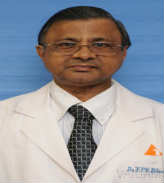Multiple Sclerosis is a potentially disabling disease that attacks the central nervous system affecting the brain, spinal cord, and optic nerves.
Multiple sclerosis treatment may require immunosuppressants to help with symptoms and slow disease progression.
If needed, chemotherapy and acupuncture may also be performed.
Multiple Sclerosis Treatment cost in India for Indian Patients is between Rs.1021200 to Rs.1361600. Cost for International patients is between USD 20700 to USD 25300.
Patient has to stay in the hospital for 2 days and outside the hospital for 15 days. The total cost of the treatment depends on the diagnosis and facilities opted by the patient.The cost of Multiple Sclerosis includes:
Preoperative diagnostic tests cost [Neurological and general medical examination]
Surgery cost
Post-Operative cost (depends on the number of follow-up sessions)
Medicine cost [Corticosteroids, pain killers, etc.]
Patient's hospital stay.
The overall cost of the procedure also varies based on the patient's condition and preferences. Some of these factors are:
Type of hospital and room opted (General, Twin sharing, or single room)
Additional tests, if required
Post-surgical complication, if it happens
Cost of Blood products (if required)
An extended stay at the Hospital
Cost of Accommodation during follow-ups, in case the patient is not a local resident
Listing approximate price of Multiple Sclerosis Treatment and some related procedures. The prices may change depending upon the centers and condition of the patient.
| Treatment name | Cost range |
|---|---|
| Multiple Sclerosis | Rs.1021200 to Rs.1361600 |
| Multiple Sclerosis Treatment | Rs.310800 to Rs.414400 |
The price varies across the cities. Tier 1 Cities are usualy more expencive thane tier 2 cities. The price for Multiple Sclerosis in different cities in India is approximately in the range of:
For patients planning to travel abroad it is useful to know the price in destinations popular with medical travellers. The price for Multiple Sclerosis in different countries is approximately:
A Neurologist who has expertise in treating nervous system disorders treats Multiple Sclerosis.
Listing popular specialists:

Senior Consultant, 23 years of experience

Hematology and Bone Marrow Transplantation

Chairman, 28 years of experience

<p>Bone Marrow Transplant, Hemato-Oncology Graft Versus Host Disease Allogenic Bone Marrow Transplant, High-risk Thalassemia Major with a new conditioning regimen</p>

Consultant, 15 years of experience

Thalassemia & Aplastic Anemia, Hematology, Bone Marrow Transplant

Senior Consultant, 21 years of experience

Benign Paediatric haematology Haemato-oncology Matched sibling and unrelated and Paediatric haploidentical transplants

Consultant, 25 years of experience

Haemato oncology Hematology Blood related diseases

Senior Consultant, 23 years of experience

Oncology, Organ Transplant Pediatric hemato-oncology Bone marrow transplant

Consultant, 21 years of experience

Multiple Myeloma, Leukemias, Lymphomas

Consultant, 14 years of experience

Thalassaemia, Haemophilia

Consultant, 43 years of experience

Hematology

Consultant, 25 years of experience

Haemato-Oncology Leukaemia Acute Leukaemia (AML/ ALL) Lymphoma Multiple Myeloma Bone Marrow Transplant CML CLL Chronic Myeloproliferative Neoplasm Myelodysplastic syndrome Anemia Thalassemia Bleeding and clotting disorders Induction therapies for acute leukemia

Consultant, 23 years of experience

Haematological Oncology Myelomas Lymphoma Alternate Donor Transplant Mismatched Transplants General Haematology Laboratory Haematology Haemato-pathology Transfusion Medicine

Senior Consultant, 13 years of experience

Hematology

Consultant, 14 years of experience

Brachytherapy (Internal Radiation Therapy) Cancer Screening (Preventive) Childhood bone and soft tissue tumors Haemophilia Thalassaemia Lymphatic drainage Eosinophilia Treatment Biochemistry

Consultant, 25 years of experience

Brachytherapy (Internal Radiation Therapy) Cancer Screening (Preventive) Stem Cell Transplantation Bone Marrow Transplant Biochemistry Blood Transfusion Eosinophilia Treatment Haemophilia

Consultant, 20 years of experience

Bleeding disorders, Blood cancers, Anemia

Consultant, 21 years of experience

Anaemia, Low Hemoglobin Low Platelet counts and platelet problems White cell problems- Lowand high white cell count enlarged glands Hodgkins Lymphoma, Non Hodgkins Lymphoma Multiple Myeloma Leukemia- Acute and Chronic AML ALL CML CLL Aplastic Anaemia, Fanconi Anaemia Spleen enlargement Bone Marrow Transplant Autologous and Allogenic Bone marrow Transplant Hematopoietic stem cell Transplant Half match Transplant Bone marrow donor search unexplained weight loss and fever Thrombosis of veins and arteries Hemophilia Thalassaemia

Consultant, 14 years of experience

Allogeneic Transport for Leukemia Haplo - Identical Stem Cell Transplant Cellular Therapy

Dr. Srinivas Chakravarthy Gummaraju
Director, 19 years of experience

Breast Cancer Surgery Treatment Treatment of Tumors Treatment of Testicular Cancer

Consultant, 9 years of experience

Bone marrow procedures, Lumbar puncture IV and intrathecal chemotherapy, Stem cell (Bone marrow) transplant

Consultant, 31 years of experience

Leukemia, Lymphoma, Anemia
The majority of people who have Multiple Sclerosis live a normal life span.
On average, they live seven years less than the other population.
Common signs of Multiple Sclerosis are -
Our Services for Multiple Sclerosis Treatment in India
Transparent - Professional - Without Hassles






NABH Certified Healthcare Discovery Platform
Vaidam is NABH certified healthcare discovery platform that will connect you to top-notch medical experts, hospitals, wellness options, and trusted travel partners to help identify and make the right healthcare choices.

Researched & Personalized Treatment Plan - Under One Roof
You can search for the best hospitals, read about them, view photographs of the facilities at the hospitals and the places at which the hospitals are located, and check the cost of treatment.

Quality Treatment Within Your Budget
As soon as you post an enquiry, the patient relation team will collect details from you, share them with the doctors and hospitals on Vaidam's panel, and get a personalized treatment plan. We research to get quality treatment within your budget.

Treatment to Travel
Vaidam concierge assists patients, to get medical Visa, the best airline fares and arrangements for your stay. Our concierge also helps you with daily travel, language, and food concerns. Vaidam does everything to be your perfect host. All of Vaidam’s services are free of cost to patients.

International Reach
Vaidam Health has network in 15+ countries, which includes India, Turkey, UAE, Germany, South Korea, Thailand, Malaysia, Spain.
Note: Vaidam Health does not provide medical advice, diagnosis or treatment. The services and information offered on www.vaidam.com are intended solely for informational purposes and cannot replace the professional consultation or treatment by a physician. Vaidam Health discourages copying, cloning of its webpages and its content and it will follow the legal procedures to protect its intellectual property